Popular Articles
- Avistate Supplement Facts
- Super Beta Prostate - Is it a Scam?
- Prostavar - Review of Ingredients - Is it a Scam?
- Having Difficulty Urinating?
- 10 Natural Prostate Treatments
- Swollen Prostate Gland
- Bell Ezee Flow Tea - Review
- Vigamaxx Reviews - Is it a Scam?
- Prostate Health Supplements
- Prost-Rx Review
- More Articles ...
 Foods That Cause Prostate ProblemsIn This Article
Certain foods can cause prostate problems in men. For example, the consumption of red meat has been linked to prostate cancer. Find out how red meat can damage the prostate and what other foods to avoid to reduce your risk of prostate problems.
What are Prostate Problems?Prostate problems are common amongst men who are aged 50 and above. These problems affect the prostate whose main function is to secrete a slightly acidic, milky white fluid that constitutes about 50 - 75% of the volume of the semen together with sperm cells and seminal vesicle fluid. The fluid secreted by the prostate contains proteins like PSA (protein-specific antigen) and a high concentration of zinc. Besides secreting this fluid, the prostate also has some smooth muscles that help to expel semen during ejaculation. Of all the types of prostate problems, BPH is the most common and it involves the enlargement of the prostate as the growth of prostate cells gets out of control. Over a period of time, an enlarged prostate may block the urethra and make urination difficult. Prostate cancer is the second most common cancer among men, and most often requires surgery. Acute and chronic prostatitis refers to the inflammation of prostate tissues. This inflammation is usually caused by a bacterial infection of the prostate. Therefore, antibiotics can be used to treat the infection and relieve the symptoms of these two prostate diseases. The most common symptoms of prostate problems include painful or burning urination, frequent urge to urinate, blood in urine or semen, inability to urinate, and painful ejaculation.
Studies have shown that certain foods can increase the risk of these prostate problems. These foods are known to cause prostate problems usually increase the level of cholesterol and cause chronic inflammation. The foods discussed below have been strongly linked to prostate problems. Red MeatThe link between the consumption of red meat and cancer of the prostate has been confirmed by several dietary and epidemiological studies. One example of these studies is a 1999 study published in the journal, Cancer. The researchers investigated the risk factors for prostate carcinoma in Taiwan.
The study participants were interviewed in-person to get information regarding lifestyle, diet, height, and weight. The results of the study showed that the consumption of red meat was moderately higher among those with prostate cancer than the controls. Also, the results showed that prostate carcinoma patients were less likely to cook vegetables with red meat. The study concluded that the consumption of red meat was associated with an increased risk of prostate cancer. Cooking Temperature and Risk of Prostate CancerA 2012 study published in the journal, Carcinogenesis, established that the temperature at which red meat is cooked may be responsible for the increase in prostate cancer risks. By comparing processed and unprocessed red meat and the temperature at which they were cooked, the researchers showed that high temperatures increased the expression of carcinogen metabolism genes in red meat and poultry. This means that high cooking temperatures generate chemical carcinogens in red meat and the accumulation of these carcinogens is responsible for the increased risk of prostate cancer. Heme, Red Meat and Prostate HealthEvidently, there are components of red meat that makes it harmful to the prostate. One theory identifies cytochromes as the damaging component of this kind of meat. Red meat contains high levels of cytochromes. These cytochromes are membrane-bound hemeproteins that carry out electron transport in the body. Myoglobin and hemoglobin are examples of membrane-bound hemeproteins and are important in the storing and transport of oxygen in mammals. Hemeproteins contain heme, a highly-conjugated system surrounding a metal (iron) ion that interconverts between its reduced and oxidized states. When heme protein is ingested in the body, the iron atom in the heme group binds with oxygen, nitric oxide, carbon monoxide, and hydrogen sulfide. Which molecule is bound to the iron largely determines the benefits of heme because once they are bound to the heme prosthetic group, these molecules can modify the functions of hemeproteins. Free heme groups usually catalyze oxidative reactions. These free heme-catalyzed oxidations are harmful and can destroy prostate epithelial cells. The oxidative destruction of prostate cells can cause inflammation, prostate enlargement, and even prostate cancer. Therefore, reducing the amount of red meat intake will limit the level of free heme available to drive oxidative damage in the tissues of the body and so reduce the risk of having prostate problems. ButterButter is a dairy product made by churning fermented cream or milk. It is mostly made from cow milk, but can also be made from the milk of other mammals including goats, sheep, buffalos, and yaks.
Cholesterol is naturally manufactured by all humans and animals as it is needed to build and maintain membranes. It is also an important precursor for hormones like testosterone and estrogen. Since the body can manufacture all the cholesterol it needs, extra cholesterol from the diet can build up in the body and cause harm. Therefore, due to butter’s high cholesterol content, its consumption can produce high body levels of cholesterol and cause cardiovascular complications such as atheroma. Atheroma occurs when there is swelling in the walls of the artery which is normally caused by the buildup of cholesterol and fatty acids in the blood vessels. This blocks the flow of blood to and from the heart and may lead to various heart diseases and increased cancer risk. Researchers have also linked serum myristic and palmitic acids to an increased risk of prostate cancer. In a study published in 1999 by the Journal of Urology, the association between diet and benign prostatic hyperplasia was investigated in a case-control study in a group of 184 BPH patients and 246 controls without any clinical indication of prostate disease. The results showed that increased consumption of butter and margarine was directly linked to an increased risk of BPH while the consumption of fruits reduced the risks of BPH. Trans Fats
These partially hydrogenated fats have replaced solid fats and liquid oils in fast foods, fried foods, snack foods, and the baked goods industry. The consumption of trans fats can increase the risk of inflammation of the blood vessels and may also lead to atherosclerosis, which is normally caused by the buildup of cholesterol along the walls of the blood vessels of the heart. Trans Fats, Inflammation, and Prostate CancerSeveral studies have established the association between trans fats and prostate cancer. In 2005, a study published in the journal, Cancer Epidemiology, Biomarkers, and Prevention showed that serum trans fats are linked with an increased risk of prostate cancer. Using data from B-carotene and Retinol Efficacy Trial, this nested case-control study explored the relationships between prostate cancer and serum phospholipid trans-fatty acids in 272 prostate cancer patients and 426 control men. The results found that serum phospholipid C18 trans-fatty acids were associated with an increased risk of prostate cancer. There is evidence that chronic inflammation plays a role in the progression of prostate cancer. Therefore the link between trans fats and inflammation may also explain their associations with prostate cancer risk. Refined CarbohydratesRefined carbohydrates are considered unhealthy carbohydrates. They are produced from plant sources of carbohydrates by removing the fiber, nutrients, and other natural components except for the highly digestible carbohydrate.
Examples of refined carbohydrates include sweetened fruit juice, soft drinks, sweetened canned fruit, bread, bagels, muffins, cakes, cookies, pie, candy bars, cupcakes, and donuts. The consumption of refined carbohydrates increases the level of insulin in the body as the body responds to the spike in sugar levels. Excessive insulin in the body leads to increased production of an insulin-like growth factor (IGF) which is known to increase the risk of prostate cancer. Study Linking Refined Carbohydrate and Prostate ProblemsDifferent studies have shown that there is a direct link between refined carbohydrates and prostate cancer. For example, in 2012, a study published in The American Journal of Clinical Nutrition demonstrated that there is an association between dietary intake of carbohydrates, refined carbohydrates, and prostate cancer. The study recruited 8,128 men who were between the ages of 45 - 73 years without a history of cancer, diabetes, or any cardiovascular disease. After a follow-up time of 15 years during which the dietary habits of the participants were followed, prostate cancer was diagnosed in 817 of the men. The results showed that there were no positive associations between total carbohydrates or prostate cancer even after adjustment for age or other potential risk factors and that there was a positive association between high intakes of refined carbohydrates and prostate cancer. Poultry and EggsA surprising food is linked to increased prostate health problems in poultry. Both poultry and eggs were showed to harm prostate health in a 2006 study published in the journal Urology. In study participants, eating eggs and poultry made prostate symptoms worse in men with prostate problems. The study researchers suggested that arachidonic acid, found in poultry, leads to increased inflammation which can make prostate problems worse. CaffeineCaffeine makes many conditions worse, and prostate problems are no exception. Limiting caffeine in all forms of soda, energy drinks, coffee, and even tea can help reduce prostate problems. Caffeine's biggest problem occurs when the prostate is enlarged and makes urination difficult. Since caffeine has diuretic properties, drinking caffeine without being able to empty the bladder effectively can cause irritation, further inflammation, and even cause bladder infections and kidney damage. Spicy FoodsAll spicy food like curries, hot sauce, and chili peppers irritate the bladder and prostate. This irritation may trigger further enlargement of the prostate, making existing issues worse. DairyResearch suggests that a diet high in dairy (particularly milk) harms the prostate. Most doctors recommend a low-fat diet for men with prostate problems. AlcoholJust like caffeine, alcohol is a diuretic, which can irritate the prostate and cause inflammation in the bladder. Men with prostate problems are advised to reduce their consumption of alcohol. The USDA recommends that men drink no more than seven drinks a week, and not all at the same time. Binge drinking is unhealthy for many reasons, but particularly for men with prostate problems. SugarSugar is the number one food for cancer cells. You can reduce your risk of developing prostate problems by cutting back on sugar. Try cutting back on sweet drinks, alcohol (which is also used as sugar by the body), and desserts. Look for sugar hidden in grocery store items and restaurant menus. Many processed foods contain sugar to improve the flavor, but the added sugar is incredibly bad for you. Although the studies on sugar and cancer are just emerging, there is solid evidence that a high sugar diet increases cancer risk. To reduce risk, cut back on sugar to 20 grams per day or less. It's trickier than you think, but the rewards are enormous and will keep you healthy throughout life. How Sugar Causes CancerThe body is not designed to eat sugar in the quantities we give it today. Just a hundred years ago, the average person ate 10 times less sugar than what we eat today. Several centuries back, even eating the fruit was considered a sweet and rare treat. While honey was available in many countries, it was not added to every food like sugar is today. Since the body is not designed to handle large doses of sugar, it is harder to process. When we use sugar, it is processed with more reactive oxygen, creating free radicals. Free radical damage can cause mitochondrial disruption, DNA damage, and impairment in cells and proteins. A large number of free radicals in the body are linked with the increased spread and development of cancer. Additional studies indicate that obesity also causes more free radical damage in the body, which means both eating sugar and gaining weight increases cancer risk. Cancer Thrives on SugarCancer cells need fuel just like any other cell. Cancer cells are still alive, they are just replicating the wrong way and mass-producing unhealthy cells. Sugar is one of the main fuels for cancer. For some reason, studies indicate that cancer cells have trouble reproducing when their fuel source is carbs or fat, but they thrive on sugar. A study from 2016 conducted by the University of Texas M. D. Anderson Cancer Center found that sugar directly feeds cancer cells in the lungs and breast tissue. Flax SeedFlax seeds are generally considered healthy, but for some reason, flax seeds encourage the growth of the prostate. Researchers are unsure why the consumption of flax can make prostate problems worse, but if you suffer from an enlarged prostate or have prostate cancer, watch out for flax and avoid it when possible. Saturated FatsSome studies have linked a diet high in saturated fat with an increased risk of developing heart disease and other heart problems. Men who have heart problems also often have prostate problems. The Urology Department at the University of North Carolina School of Medicine stated that saturated fats could be a possible influence on the growth rate of enlarged prostates. Saturated fat is found in:
Foods that Reduce Prostate Cancer RiskJust as some foods can make prostate problems worse, some foods can reduce the risk of problems in the prostate. Replace the questionable foods with the following foods that have been shown to improve prostate health. Even if you don't already have prostate issues or prostate cancer, these foods will boost your overall health and can reduce your risk of developing prostate problems down the line. BerriesBerries fight enlargement in the prostate because they are full of antioxidants. Antioxidants are one of the number one fighters of cancer and prostate enlargement because they are necessary for the healthy reproduction of cells. Antioxidants fight free radical damage and reduce overall cancer risk. Studies have found that vitamin C, in particular, is beneficial for reducing benign prostatic hyperplasia symptoms. Although we think of oranges and lemons as containing the highest levels of vitamin C, berries also contain high amounts combined with other antioxidants that make them ideal for reducing cancer risk. Fatty FishFatty fish are full of healthy nutrients that benefit overall health. The main nutrient in fish is Omega 3 fatty acids, which help reduce bad cholesterol and raise healthy cholesterol, reducing heart disease risk. A review paper on the health benefits of fatty fish and prostate health found that omega 3 fats reduce the spread of prostate cancer cells due to their anti-inflammatory properties. NutsNuts are a healthy alternative to processed foods and junk food snacks. Nuts are filling, but they also contain a huge number of nutrients suitable for reducing prostate cancer risk and preventing inflammation in the prostate. Brazil nuts, in particular, might be the most effective at reducing problems in the prostate. Brazil nuts contain selenium, vitamin E, and calcium, all important nutrients for health. A study from 2010 found that a mixture of soy and selenium could fight prostate cancer and reduce inflammation in the area. Other nuts beneficial for men's health include walnuts, almonds, and pecans. BeansBeans, rather than protein from red meat or chicken, are beneficial sources of protein for improving prostate health. Beans, hemp seeds, and chia seeds provide plant proteins that are essential for the health of the body without the side effects of red meat. Beans are high in both protein and fiber, which has been linked to preventing inflammation in the prostate. Researchers suggest that men eat about 56 grams of protein daily. Green TeaAlthough most sources of caffeine are damaging to the prostate, green tea may be beneficial for prostate health. Green tea contains antioxidants and other compounds that lower bad cholesterol and prevent damage to the heart and prostate. If you are worried about caffeine intake, you can even purchase caffeine-free green tea for many of the same benefits without the caffeine. Sesame SeedsSesame seeds are high in many minerals, but most notably zinc. According to a study published in the Indian Journal of Urology, zinc intake is associated with the health of the prostate. Men who have higher levels of zinc in their bodies were less likely to suffer from prostate problems. Pumpkin seeds have also been shown to benefit men with prostate issues. Bell PeppersBell peppers are high in vitamin C, which is beneficial for prostate health. According to the Mayo Clinic, vitamin C found in vegetables (more so than vitamin C from supplements or fruit), showed the biggest benefit on prostate health. Broccoli, kale, brussels sprouts, and cauliflower are also all high in vitamin C. TomatoesTomatoes have high levels of lycopene, which is a compound that turns tomatoes red. Lycopene has been shown in studies to reduce cancer risk and help improve the health of the prostate, according to the National Cancer Institute. Increasing lycopene intake was able to slow the progression of BPH in study participants. AvocadosAvocados are a vegetable naturally high in beta-sitosterol. beta-sitosterol is a commonly prescribed supplement for improving prostate health and reducing prostate size. Some studies have suggested that increasing beta-sitosterol intake can reduce residual urine volume and improve urinary flow. You can also find beta-sitosterol in pumpkin seeds, pecans, wheat germ, and soybeans. Ginger, the Medicinal SpiceGinger or Zingiber officinale is both a spice and an herb. The root or rhizome is the part of the plant used for culinary and medicinal purposes. Young ginger rhizome is fleshy and succulent. It can be eaten raw, cooked as food, or boiled to make herbal tea. Matured ginger rhizome, on the other hand, is dry and fibrous. It is used as a spice in different dishes and for flavoring foods. Preliminary research into the therapeutic benefits of ginger suggests that the herb has diverse medicinal uses and confirms its efficacy for most of the diseases it is used to treat in Asian and African traditional medical practices.
The FDA classifies ginger as “generally recognized as safe”. It is a well-tolerated herb although it can cause mild side effects such as nausea, heartburn, gas, bloating, and belching especially when the powdered root is taken.
Taking more than 2 g/kg of body weight of ginger can result in acute overdose. This causes the overstimulation of the central nervous system and a condition referred to as “ginger jitters” Ginger is contraindicated for people suffering from gallstones and it should not be combined with certain medications including warfarin. The Bioactive Phytochemicals in GingerAs a food, ginger is a good source of dietary fiber, protein, vitamins A and C as well as phosphorus and potassium. However, ginger is more prized for its medicinal uses than its nutritional benefits. There are 3 major classes of active phytochemicals in ginger. These include zingerone, shogaols, and gingerols; and they are all volatile oils. Zingerone contributes a little to the aroma of ginger and it is used as a spicy aroma in the perfumery industry. However, fresh ginger contains no zingerone. Instead, the compound is made from gingerols during cooking. Zingerone has an antibacterial property and is believed to be responsible for the efficacy of ginger in the treatment of bacteria-induced diarrhea. The shogaols are also formed from gingerols due to dehydration during the storage of fresh ginger. Like gingerols, shogaols are also responsible for the pungent aroma of ginger. Gingerols are the primary phytochemicals in fresh ginger. They are not as pungent as shogaol and but are responsible for most of the therapeutic benefits of ginger. Gingerol is the ginger phytochemical responsible for relieving nausea and migraine. It has also been shown to be useful in the treatment of arthritic pain and for reducing high body temperature during high fevers. Also, gingerol is currently a drug candidate in different cancer studies and early results have been positive. The Cancer StudyThe most recent study to confirm the anti-cancer benefits of ginger is also the one with the most dramatic results. In a paper published in The British Journal of Nutrition in February 2012, a group of researchers from Georgia State University tested the efficacy of whole ginger extract on prostate cancer cells in a group of mice. Some of the mice were given daily doses of 100 mg/kg of the ginger extract while the others received a placebo. By measuring the volume of the prostate tumor and other measures of cancer growth such as proliferation index and immune reaction to the tumor, the researchers were able to determine the effect of the ginger extract compared to the placebo. The results of the study showed that whole ginger extract reduced prostate tumor by 56% in these mice. Also, the tumor taken from the mice in the ginger group showed a lower proliferation index and higher rates of apoptosis (cell death) compared to the control mice who only got a placebo. Even though this positive result is remarkable on its own, the researchers even discovered an equally great benefit of the anticancer effect of ginger extract: while ginger inhibits the proliferation of prostate cancer cells, it did not affect the rapid growth of the cells of the gut and bone marrow (two sites where rapid cellular growth is needed). This 2012 study not only demonstrated the in vivo and in vitro anticancer activity of the whole ginger extract, but it also demonstrated its specificity and safety. All of these benefits make ginger an excellent natural remedy for treating prostate cancer. The next stage in the research into the anticancer benefits of ginger is to replicate these results in humans. Already, human trials have been done on the benefits of ginger in the treatment of colon cancer. A Phase II study conducted in 2011 showed that ginger root extract significantly reduced the markers of colon inflammation after 28 days. This trial highlighted the potential of ginger as a natural agent for preventing colon cancer. Ginger and Prostate ProblemsProstate problems are quite common in men older than 50 years. As men age, the prostate gland increases in size because it experiences accelerating cellular growth. This happens for many reasons but the 2 most important ones have increased stimulation of the prostate by androgen hormones and reduced sensitivity to proteins that regulate the cell growth cycle. There are 3 main types of prostate problems. These are:
Furthermore, its antioxidant effect can help reduce the oxidative stress that predisposes the prostate to runaway cell growths responsible for prostate enlargement and prostate cancer. Prostate cancer is the second most common cancer affecting men. It may require invasive surgical procedures to remove, and even then, it still kills more men than all types of cancers except lung cancer. Therefore, lowering the risk of prostate cancer is important as men grow older. Ginger can reduce the risk of prostate cancer and even help shrink tumors in the prostate. Many studies have been done to determine how ginger affects human prostate cancer cells. These studies conclude that ginger works by the mechanisms listed in the table below.
With these anticancer benefits, experts advise that the adoption of ginger into the diet, especially for elderly men. Alternatively, ginger extract supplements are also recommended for reducing the risk of prostate cancer. Ginger should not be used alone in the treatment or prevention of prostate cancer. Rather, it should be combined with other natural remedies for prostate problems. These remedies include saw palmetto, pygeum, stinging nettle, vitamins D and K as well as soy isoflavones, lycopene, and selenium. Given that there are a good number of these natural remedies, it is best to choose a prostate supplement that packs the most important ones. There are several such supplements available in the market and one good example is Avistate which contains most of the remedies mentioned above. Improve Your Diet and Improve Prostate HealthThe health of your prostate is closely tied to your diet. The more foods you eat that damage the prostate, like red meat, processed grains, and sugar, the more likely you are to have prostate problems. However, exchanging these trouble foods with foods that benefit prostate health, like tomatoes, avocados, and berries will provide a positive influence on your prostate health. Don't wait until your prostate problems start to take over your life. Take steps today to control your prostate health and give your body the nutrients it needs to operate efficiently and effectively. Sourceshttp://www.sciencedirect.com/science/article/pii/S0306987706006244 http://www.mayoclinic.com/health/cholesterol/HQ00608 http://www.nejm.org/doi/full/10.1056/NEJMra054035
[+] Show All
|
||||||
| Next Article: Lycopene and Prostate Health |





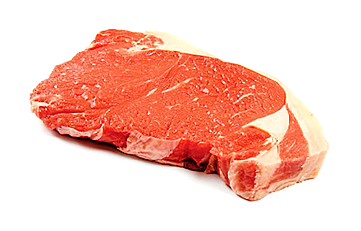 The study recruited 90 patients from 2 military hospitals who had been diagnosed with prostate carcinoma between August 1995 and July 1996. Also recruited were 180 controls who were non-cancer patients treated in these hospitals outside the cardiology and urology units.
The study recruited 90 patients from 2 military hospitals who had been diagnosed with prostate carcinoma between August 1995 and July 1996. Also recruited were 180 controls who were non-cancer patients treated in these hospitals outside the cardiology and urology units.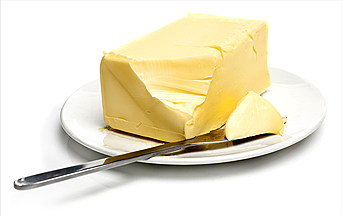 Butter has high levels of saturated fats and contains cholesterol. The saturated fatty acids that are present in butter include lauric acid, myristic acid, palmitic acid, and stearic acids.
Butter has high levels of saturated fats and contains cholesterol. The saturated fatty acids that are present in butter include lauric acid, myristic acid, palmitic acid, and stearic acids.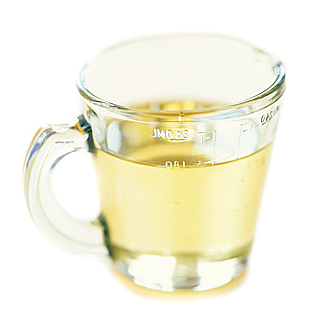 A large number of trans fats consumed today are produced by the processed food industry by partially hydrogenating unsaturated plant fats (vegetable oils). This process involves the conversion of vegetable oils to semisolid fats that can be used for margarine, cooking, and industrial manufacturing.
A large number of trans fats consumed today are produced by the processed food industry by partially hydrogenating unsaturated plant fats (vegetable oils). This process involves the conversion of vegetable oils to semisolid fats that can be used for margarine, cooking, and industrial manufacturing.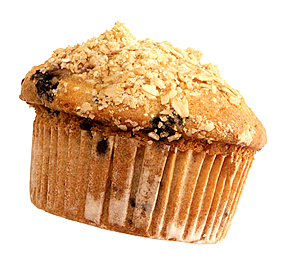 Refined carbohydrates are mostly simple carbohydrates. They are easily digestible and can rapidly increase blood sugar levels.
Refined carbohydrates are mostly simple carbohydrates. They are easily digestible and can rapidly increase blood sugar levels.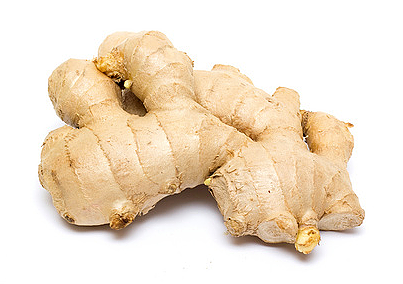 Also, some people experience allergic reactions to ginger in the form of rashes.
Also, some people experience allergic reactions to ginger in the form of rashes.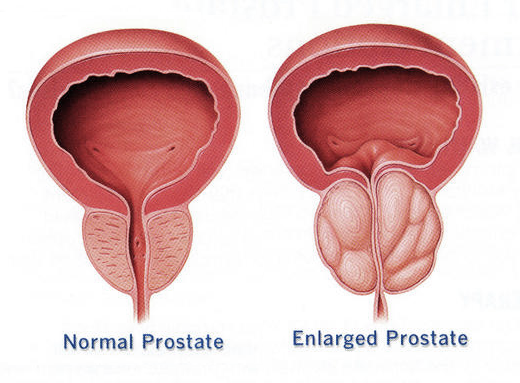 Ginger is an excellent natural remedy for prostate problems. For example, its anti-inflammatory effect can help prevent and/or treat prostatitis.
Ginger is an excellent natural remedy for prostate problems. For example, its anti-inflammatory effect can help prevent and/or treat prostatitis.